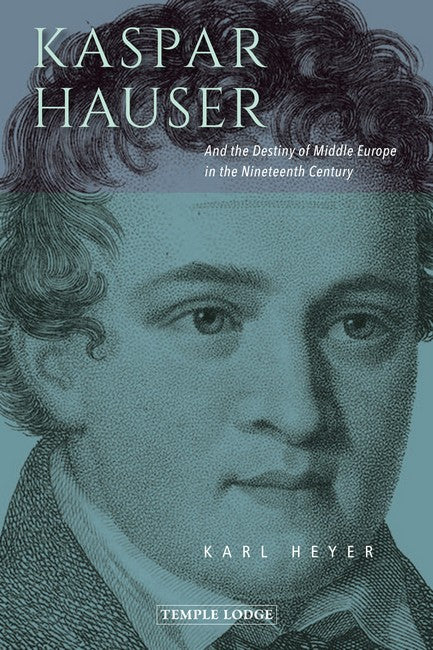KARL HEYER (1888-1964), lawyer and historian, was one of the foremost pupils of Rudolf Steiner. Born in Hanau (Hesse), he studied law in Kassel. In 1911, he heard a lecture by Rudolf Steiner and began an intensive study of history and philosophy, attaining his PhD in 1917. Heyer worked actively in the movement for social threefolding, gave lectures and wrote essays and many books, including the nine-volume work Beitrage zur Geschichte des Abendlandes ('Contributions to the History of the West'), which includes the present volume on Kaspar Hauser.
Description
Karl Heyer and the Destiny of his Kaspar Hauser Work-Foreword to the 4th Edition by Thomas MeyerForeword by Karl Heyer1. The Being of Kaspar Hauser and his Appearance in the 19th CenturyThe Unwritten History of the 19th CenturyThe Appearance of Kaspar HauserRudolf Steiner's References to Kaspar Hauser in the public lecturein Nuremberg 17 June 1908The Question of the Being of Kaspar HauserThe Text of Rudolf Steiner's ReferencesViewpoints that result from Steiner's References1. The Development of Consciousness2. Kaspar Hauser's 'Wonderful Memory'3. Professor Daumer4. 'Sun and Moon'5. A Methodological Comment6. The 'Child of Europe'7. Consequences of the Development of Intelligence8. 'Nibbling' at Intellectuality and Eating Meat9. The Deliberate Holding Back of Kaspar Hauser's Development10. Many Aspects of the Phenomenon: Body and Soul11. His Effect on Animals12. Kaspar Hauser and ReligionA Necessary DistinctionWalking, Speaking, ThinkingAutopsy Findings: Brain and Liver'Manifestations of Higher Spiritual Powers'Blurring the TracesThe Disrupted Development of the IKaspar Hauser Speaks about Himself. His DeathHow the Foundling Experienced the People Around himThe 'Archetypal Human Being from Paradise'The Child of Humanity and the Child of EuropeThe Christmas MotifWalking, Speaking, Thinking: RepriseThe Motif of PersecutionThe 'Shepherds' and the 'Kings'RousseauThe Mercurial Element. Kaspar Hauser and NapoleonThe Task of Middle EuropeKaspar Hauser's Appearance in the 19th CenturyPeople around Kaspar HauserJakob WassermannKaspar Hauser's OpponentsDestiny Relationships among the Opponents'The monster stronger than I'II. The Destiny of Kaspar Hauser and the Destiny of Middle Europe'History which did not come about'An Indication by Rudolf SteinerThe Question of Kaspar Hauser's Family OriginsThe 'Prince Theory'. For and AgainstIn the 19th CenturyIn the 20th CenturyDates in the Life of Kaspar HauserThe Land of Baden. Karl Friedrich von BadenFamily TreeJung-StillingThe Mission of Middle Europe'The Age of Romanticism'The Break in German DevelopmentCould it have been otherwise?The 1840s and the Impulse of LiberalismBaden, Liberalism and the French ElementKarl von Baden and Stephanie BeauharnaisNapoleon's Adopted Grandson and His MotherKaspar Hauser and NapoleonNapoleon's SonA Threefold EuropeThe Child of Europe and His RelationsNo 'Nibelung'-PrinceA 'Transformation of the Concept of the Prince'1848Causes of the FailureBaden - Prussia - HohenzollernBismarckRealpolitik?'Blood and Iron'Bismarck and LassalleThe German Empire of 1871Wilhelm IIPrince Max of BadenConclusionHomeless SoulsRichard WagnerMalwida von Meysenbug, Edouard SchureLudwig II of Bavaria1833-1933Notes

